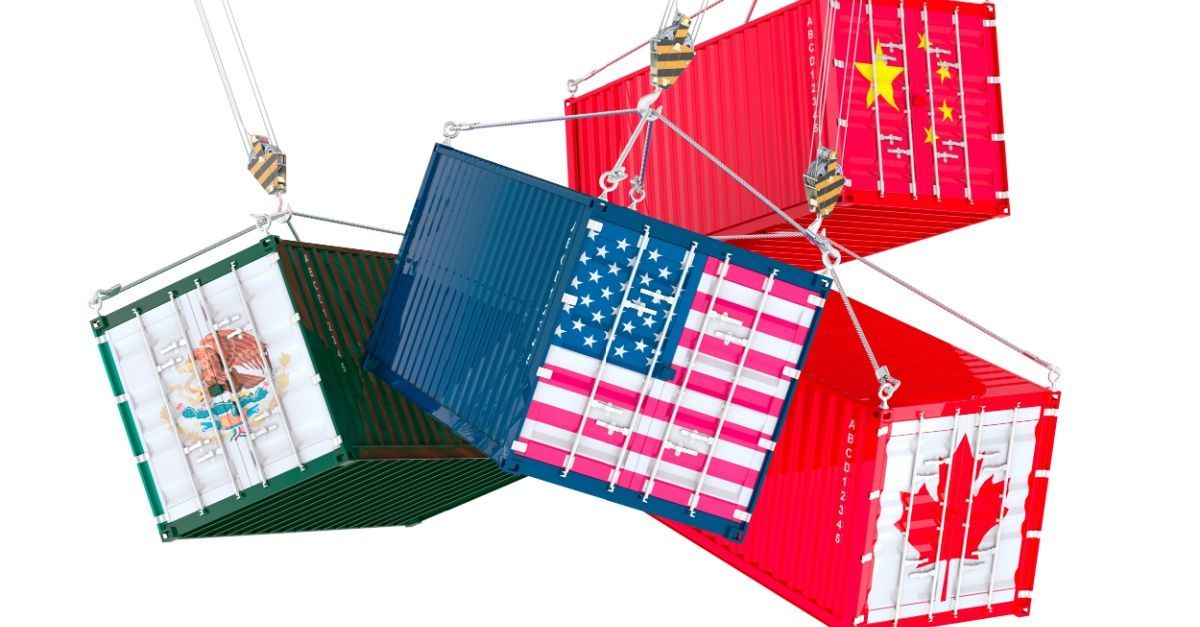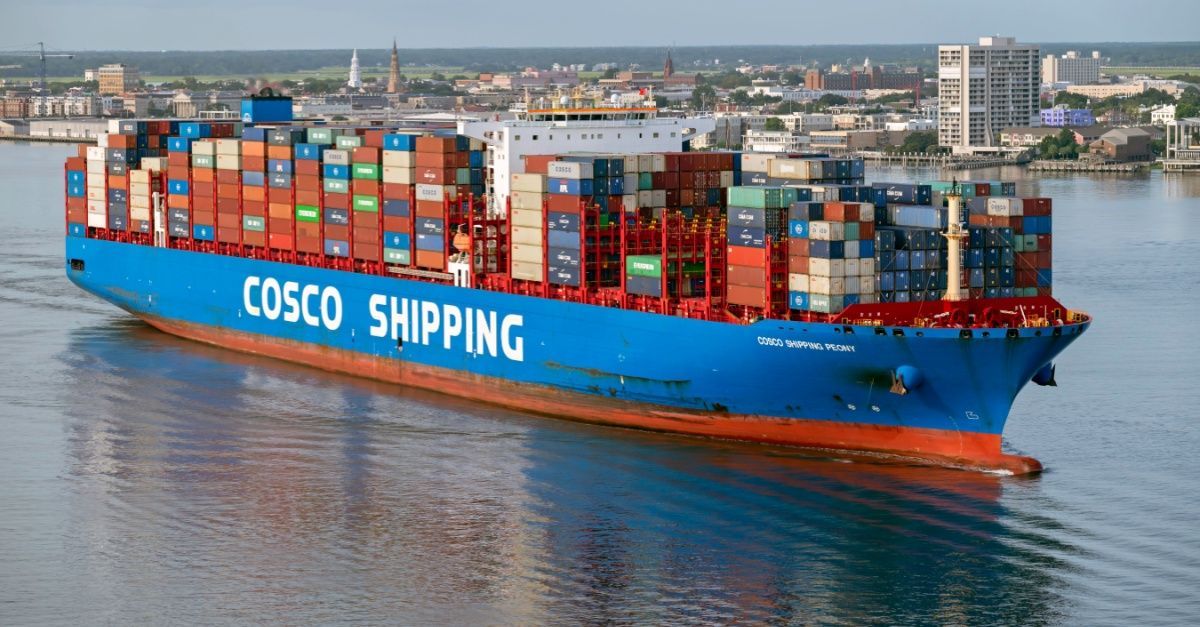Reefer Truck Essentials: Six Strategies for Safe Trucking
Blog Post CTA
We will get back to you as soon as possible.
Please try again later.
Every degree matters in the world of reefer trucking. One misstep can create a chain reaction, transforming temperature-sensitive goods into waste and anticipated profit into a loss.
The stakes are high when transporting temperature-sensitive products such as fresh produce, plants, animal products, specialized medicines, or chemicals.
The average reefer truck can maintain temperatures ranging from minus-13 degrees to 77 degrees Fahrenheit, and some specialized refrigeration units can go as low as -85 degrees Fahrenheit. With so many different types of refrigerated trucks for different needs, there’s one underlying question- how is it possible to navigate these temperature nuances to guarantee the secure arrival of goods?
This article aims to answer this question by uncovering six crucial reefer truck safety and reliability strategies. It will walk you through each stage, from the earliest steps of truck preparation to the decisive moment of unloading. When implemented with care and precision, these strategies serve as a comprehensive blueprint for ensuring optimal results.
Six Strategies for Reliable Reefer Trucking
Reefer trucking offers numerous benefits for the safe transport of perishable goods. However, securely transporting these goods could prove futile without implementing a robust blend of strategies. Several critical tactics come into play – meticulous preparation, careful loading, constant monitoring, comprehensive theft prevention, adherence to regulations, and reliance on industry experts. Let's unpack these six strategies and see how each plays a pivotal role in achieving reliable and efficient transportation of perishable goods.
1. Preparing the Reefer Truck
When securing the integrity of temperature-sensitive goods, a reefer truck's preparedness is paramount. Preparation involves a meticulous, two-pronged approach that can significantly influence the safe delivery of the goods.
The first prong involves thoroughly inspecting the reefer unit before each trip. This stage is not a cursory glance but a detailed analysis of various critical components, including checking for mechanical issues such as leaks or loose belts, which could jeopardize the reefer truck's performance. Equally important is ensuring the temperature settings align flawlessly with the cargo's temperature requirements. Misaligned temperature settings could lead to a severe risk of cargo spoilage during transport, causing financial loss and reputational damage.
The second prong involves an equally comprehensive examination of the cargo area itself. A well-rounded reefer trucking strategy necessitates checking the integrity of door seals, the condition of insulation, and any signs of structural weaknesses in the truck body. A compromised door seal or inadequate insulation can lead to temperature fluctuations, threatening the quality of the goods.
2. Loading and Securing the Goods
An organized approach that treats freight not just as goods to transport but as unique elements needing specific care forms the bedrock of efficient reefer trucking. Like a chef who understands the nuances of different ingredients, familiarize yourself with the temperature needs of each item in your cargo to maintain optimal conditions to keep the goods in peak condition during the journey.
The loading process commences not with the first item placed in the truck but rather with the pre-cooling of the truck. This initial step guarantees the cargo area meets the optimal temperature immediately. Concurrently, maintaining abundant airflow can help prevent hotspots from unfavorably affecting specific goods. Then, once loading begins, pay attention to balancing speed and safety. Consider strategically arranging items to prevent shifting during transit - even a single box out of place can disrupt airflow, meddle with temperature regulation, and risk your goods' safety.
The final yet crucial step in this process is securing your goods. Consider outfitting your reefer truck with tools like load bars, straps, airbags, pallets, and dividers to anchor cargo, minimize transit movement, and reduce the risk of damaging goods. Moreover, thoroughly securing your cargo stabilizes the truck, significantly enhancing overall journey safety.
3. Monitoring and Controlling the Reefer Unit
Running a successful reefer trucking operation entails vigilant monitoring and control of the reefer unit's temperature and humidity levels beyond just setting the right temperature. Swift, accurate responses to deviations safeguard your cargo's quality and reputation while simplifying compliance with regulations like the Food Safety Modernization Act (FSMA).
The number one priority in this step is to optimize ventilation and proper air circulation within the truck. Creating a balanced, well-regulated ecosystem eliminates temperature inconsistencies and effectively manages humidity. By taking this proactive approach, you also significantly reduce the risk of harmful condensation and provide extra protection for your goods.
To accomplish this objective, consider
embracing technology and advanced systems. Real-time monitoring, advanced power management, and wireless sensors are a few tools you can use to streamline regular checks and facilitate early issue detection. With uninterrupted oversight, you gain remote control capabilities that enhance operational efficiency. Advanced power management further optimizes your operations by extending battery life. Moreover, immediate alerts from wireless sensors promote streamlined and responsive operations, ensuring your cargo remains in prime condition.
4. Preventing Theft and Unauthorized Access
An alarming rise in cargo theft, notably with food and beverages, is sweeping the U.S. Statistics from CargoNet underscore a troubling 50% year-over-year surge and an average loss of $214,000 per incident. Moreover, the FBI estimates the annual cost to trucking companies and retailers at $15 to $30 billion, further straining an already troubled supply chain.
Safeguarding your reefer trucks, therefore, is non-negotiable. Thieves frequently focus on
commodities they can easily sell on the black market. Implementing robust security measures such as
tamper-proof locks and seals is vital to combat this. GPS tracking systems supplement these measures, enabling real-time monitoring of your reefer truck's route and swiftly identifying any unusual stops. According to Travelers ' special investigations group, such technology has led to the recovery of over $85 million in stolen goods since 2011.
Meanwhile, also pay attention to the human factor. Meticulous background checks on personnel, complemented by strict access control measures like key cards or biometric scanners, significantly reduce the risk of unauthorized access to your precious cargo. By embracing these strategies, you can combat the rising tide of cargo theft, ensuring your goods arrive safely and securely at their destination.
5. Compliance with Regulations and Best Practices
Safety in reefer trucking starts with adhering to strict regulatory standards. Key ones include the FSMA, the FDA Food Code, The Code of Federal Regulations (CFR), Title 21, Part 117, The International Organization for Standardization (ISO) 20000, and The Good Distribution Practices (GDP). These establish guidelines for the safe transportation and distribution of food and pharmaceutical products worldwide.
However, safety goes beyond knowing rules. It's about
embedding best practices into your routine. Regular inspections of your reefer truck, detailed documentation of temperature and humidity levels, and a comprehensive maintenance logbook serve as the foundation. Layer in real-time monitoring systems, extensive personnel training, and robust contingency plans, and you're paving the way to a secure transport environment.
Reefer trucking is challenging. Nobody said it's easy. But, by keeping a keen eye on these complexities and staying focused on regulations and best practices, you can ensure a safe journey for every temperature-sensitive item. Consider the
storage temperature requirements for various types of produce. The wide range of temperatures speaks for itself and illustrates the importance of staying on top of things.
Apples: 30–40°F- Pears: 29–31°F
- Green Beans: 40–45°F
- Cucumbers: 50–55°F
- Eggplant: 46–54°F
- Watermelon: 50–60°F
- Sweet Peppers: 45–55°F
- Potatoes: 38–40°F
- Sweet Potatoes: 55–60°F
- Tomatoes: 55–70°F
6. Trust the Experts
Navigating the complexities of reefer trucking requires a blend of expert knowledge and committed application, both of which providers like Entourage Freight Solutions (EFS) exemplify. With a deep-rooted understanding of the intricate rules and regulations in the industry, EFS's team of professionals ensures safety is never compromised. The comprehensive expertise extends to personalized solutions, meeting each client's unique needs.
Partnering with EFS presents a unique opportunity. A tailored, client-focused approach ensures the logistics of temperature-sensitive transportation are streamlined and efficient. EFS employs advanced technology and applies its vast experience to provide unrivaled reefer trucking solutions. The result is not only the safe transit of goods but also the peace of mind that comes with knowing that a dedicated and reliable partner is at the helm. EFS’s deep commitment to safety, personalized solutions, and exceptional service marks them as the trusted experts in reefer truck transportation.
A Safer Tomorrow in Reefer Trucking
We've explored the key strategies for reefer truck safety, taking in the sights from preparation to loading, control, theft prevention, regulatory compliance, and expert guidance. These are more than just theoretical guidelines. They are actionable steps to secure your temperature-sensitive goods during transport.
Leveraging the expertise of seasoned professionals like EFS simplifies reefer trucking logistics. With comprehensive services spanning the
entire food service supply chain, EFS meets evolving demands. It offers
logistics solutions for food service subscriptions, meal kits, and same-day deliveries. Furthermore, EFS provides specialized logistics solutions, integrated support for
early-stage manufacturing transport, and customized services for
growers, shippers, or
retailers. Prioritizing care, efficiency, and cost-effectiveness, EFS enhances the quality and scalability of logistics operations with features like traceability and immediate capacity access via
expedited shipment services.
No matter the challenge, a freight specialist from EFS is ready to help. Don’t compromise on the safety of your goods. Harness the power of expertise, personalize your reefer trucking solutions, and pave the way to a more secure tomorrow in the industry.
Speak to a freight specialist today… and put safety first.









